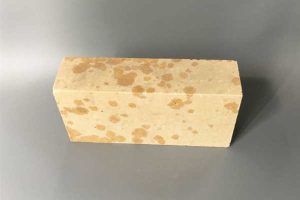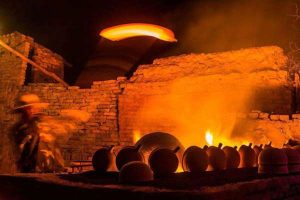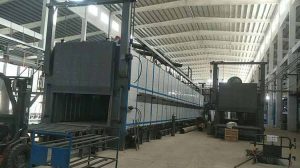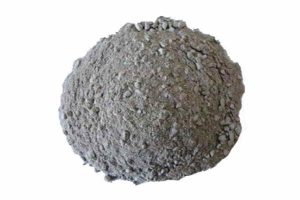Fire bricks, also known as refractory bricks, are a vital component in various industrial applications such as kilns, furnaces, and fireplaces. These specialized bricks are designed to withstand high temperatures and provide excellent thermal insulation. In the manufacturing process of fire bricks, quality control plays a pivotal role in ensuring the production of reliable and durable products.
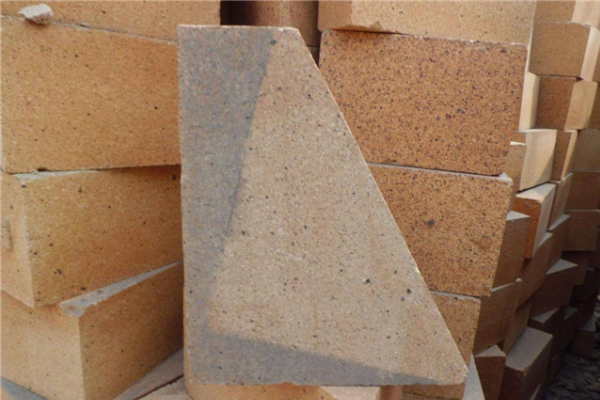
The Importance of Quality Control in The Manufacture of Fire Bricks
Maintaining stringent quality control measures during the production of fire bricks is crucial for several reasons:
Ensuring Safety Compliance: Fire bricks are subjected to extreme heat, and their failure can lead to serious accidents or property damage. Through quality control, manufacturers can verify that the bricks meet safety regulations and have the necessary fire resistance properties.
Optimizing Performance: Fire bricks need to provide excellent thermal insulation and resistance to thermal shock. Quality control ensures that the fire-proof bricks have the right composition, density, and porosity to deliver optimal performance in high-temperature environments.
Preventing Costly Failures: Poor-quality fire bricks are prone to cracking, spalling, or disintegration when exposed to extreme temperatures. By implementing quality control measures, manufacturers can identify and eliminate defective bricks, reducing the risk of failures and costly replacements.
Enhancing Durability: Fire bricks are expected to have a long service life and withstand repeated heating and cooling cycles. Quality control allows manufacturers to test the bricks for durability and ensure they can endure the demanding conditions they will be subjected to.
Maintaining Consistency: Consistency in the production of fire clay bricks is essential for reliable performance. Quality control helps manufacturers maintain uniformity in dimensions, shape, and composition, ensuring that every brick produced adheres to the desired specifications.
Challenges in Implementing Quality Control
While quality control is essential, it presents certain challenges in the manufacture of fire bricks:
Raw Material Variations: The quality of fire bricks can be influenced by variations in the raw materials used. Different batches of clay, additives, and binders can have variations in composition and properties, making it challenging to maintain consistent quality.
Complex Manufacturing Process: The manufacturing process of fire bricks involves several steps, including raw material preparation, molding, drying, and firing. Each stage presents opportunities for defects to occur, necessitating thorough quality control at every step.
High-Temperature Testing: To ensure the fire bricks can withstand extreme heat, testing needs to be conducted under controlled conditions. This requires specialized equipment and facilities capable of simulating the intended operating environment, adding complexity to quality control procedures.
Quality Control Costs: Implementing robust quality control measures can be costly for manufacturers. It involves investing in equipment, skilled personnel, and regular testing, which may require a significant financial commitment.
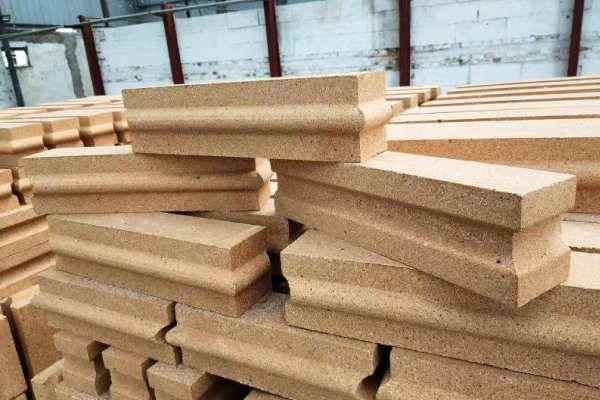
Benefits of Quality Control in Fire Brick Manufacturing
Implementing effective quality control measures in the manufacture of fire bricks brings numerous benefits:
Customer Satisfaction: By producing high-quality fire bricks that consistently meet performance standards, manufacturers can ensure customer satisfaction. Reliable products build trust and reputation in the market, leading to repeat business and positive word-of-mouth referrals.
Regulatory Compliance: Firebrick used in industrial applications needs to comply with specific safety regulations. Quality control helps manufacturers ensure that their products meet these requirements.
Reduction in Wastage: Quality control helps identify and eliminate defective fire bricks early in the manufacturing process. By reducing the number of faulty bricks, manufacturers can minimize wastage of raw materials and resources, resulting in cost savings.
Improved Efficiency: Implementing quality control procedures allows manufacturers to identify and address any issues or inefficiencies in the production process. By continuously monitoring and improving quality, manufacturers can streamline operations and increase overall efficiency.
Enhanced Reputation: Consistently delivering high-quality fire bricks through effective quality control enhances a manufacturer’s reputation in the industry. It demonstrates a commitment to excellence and reliability, attracting more customers and business opportunities.
Risk Mitigation: Quality control helps mitigate risks associated with product failures and accidents. By ensuring that fire bricks meet safety standards and performance requirements, manufacturers minimize the potential for accidents, injuries, and property damage caused by faulty bricks.
Conclusion
The importance of quality control in the manufacture of fire bricks cannot be overstated. It ensures safety compliance, optimizes performance, prevents costly failures, enhances durability, and maintains consistency. Despite the challenges involved, implementing effective quality control measures brings significant benefits such as customer satisfaction, regulatory compliance, reduced wastage, improved efficiency, enhanced reputation, and risk mitigation.
Manufacturers must prioritize quality control at every stage of the manufacturing process, from raw material selection to the final product. By investing in equipment, skilled personnel, and regular testing, they can deliver high-quality fire bricks that meet safety regulations, perform optimally, and withstand the harsh conditions they are designed for.

